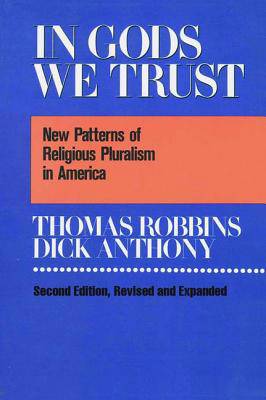
- Afhalen na 1 uur in een winkel met voorraad
- Gratis thuislevering in België vanaf € 30
- Ruim aanbod met 7 miljoen producten
- Afhalen na 1 uur in een winkel met voorraad
- Gratis thuislevering in België vanaf € 30
- Ruim aanbod met 7 miljoen producten
Omschrijving
Much has changed since publication of the first edition of this established text in the sociology of religion. Revised and expanded, this edition emphasizes new patterns of religious change and conflict emerging in the United States in the latter part of the twentieth century. Leading scholars describe and analyze developments in five main areas: The fundamentalist and evangelical revival; challenge and renewal in mainline churches; spiritual innovation and the so-called New Age; women's movements and issues and their impact; and politics and civil religion.
Chapters include an examination of religious movements' responses to AIDS; Christian schools; quasi-religions; healing rites and goddess worship; recruitment of women to charismatic and Hassidic groups; televangelists and the Christian Right; racist rural populism; contemporary Mormonism and its growth; cults and brainwashing; Jonestown; dissidence in the Catholic church; and trance-channeling, among other topics.
A new introductory chapter by the editors establishes an integrating framework in terms of three themes: increasing conflict and controversy associated with American religion; increasing focus on various forms of power in American religion; and challenges to models of secularization and modernization inherent in religious revival, innovation, and politicization. A concluding chapter by the editors looks at new trends and assesses their possible impact in coming years.
Like its predecessor, this outstanding collection is a significant contribution to the literature as well as a valuable resource for the classroom.
Specificaties
Betrokkenen
- Auteur(s):
- Uitgeverij:
Inhoud
- Aantal bladzijden:
- 558
- Taal:
- Engels
Eigenschappen
- Productcode (EAN):
- 9780887388002
- Verschijningsdatum:
- 30/01/1990
- Uitvoering:
- Paperback
- Formaat:
- Trade paperback (VS)
- Afmetingen:
- 154 mm x 227 mm
- Gewicht:
- 771 g

Alleen bij Standaard Boekhandel
Beoordelingen
We publiceren alleen reviews die voldoen aan de voorwaarden voor reviews. Bekijk onze voorwaarden voor reviews.











